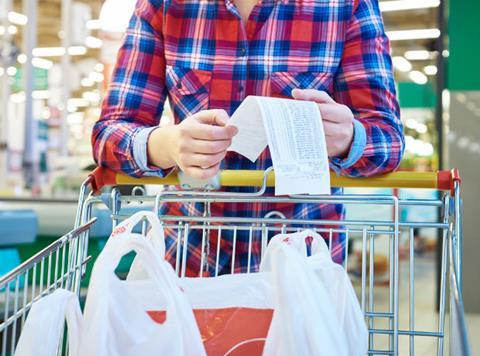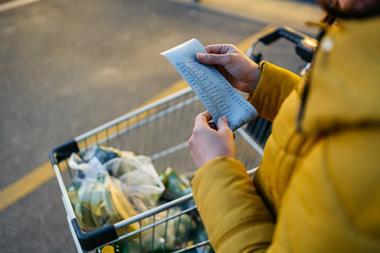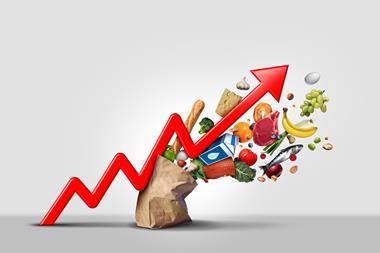
Food industry bosses have upgraded their prediction for inflation to nearly 6% by Christmas and are urging ministers to row back on the “tide of taxation” impacting costs for the sector.
The FDF claims inflation will now reach 5.7% by December, an increase from its forecast of 4.8% made in June.
It said a key driver was the cost of government regulation and policy decisions, and urged ministers to bear down on pressures impacting on the industry. These include changes to employer National Insurance contributions, costing the sector £410m a year, and £1.1bn from the EPR packaging tax.
Whilst commodity and energy prices were stabilising, inflation was being driven by government policies putting cost pressures on businesses, said the federation.
Between January 2020 and July 2025, food and non-alcoholic drink prices had risen by 37%, compared with 28% for overall UK prices, with household products such as milk, cheese, eggs and oils among those seeing the steepest increase.
The FDF is urging the government to ensure money raised form the EPR scheme is used to boost recycling rates, to ensure producers are not hit with even higher bills in future years.
Other measures it is calling for include a backtrack on plans to increase the rate the industry pays on the Soft Drinks Industry Levy (SDIL), with the tax due to add £290m to industry costs between 2025 and 2030 according to the forecast.
“UK food price inflation is running persistently high. It’s an outlier against comparable European economies and it’s persisting in the absence of energy or commodity shocks. The costs are such that companies can no longer absorb them and are having to pass at least some of them onto consumers,” said FDF CEO Karen Betts.
“As this autumn’s budget looms, it’s critical that government does not add further to the already high costs of regulation in our sector. We’ve been hit by rising taxes, employment costs, and a new packaging tax.
“We’re calling on government to help us turn this tide by partnering with industry to attract investment, accelerate productivity growth, boost skills, and grow exports across our sector. This will help counter inflation and secure a more resilient future for UK food and drink manufacturing.”
The FDF added suppliers were also being squeezed further due to being caught by both rising costs and supermarkets refusing to pass on cost price increases.
The report says: “The UK grocery sector has been locked in an intense price war for nearly a year.
“Shoppers have increasingly shifted toward cheaper products, enabling discount grocers to expand their share of the market by 5.9% since 2020.
“In response, traditional retailers have adopted aggressive price-matching strategies to hold on to customers. This competitive pressure has left food manufacturers with nowhere to pass on their rising costs.
“The challenge is especially acute for smaller producers of own-label goods, who often work under short-term contracts with retailers.
“Lacking bargaining power in price negotiations, they are forced to absorb more of the inflationary burden themselves.”



















No comments yet